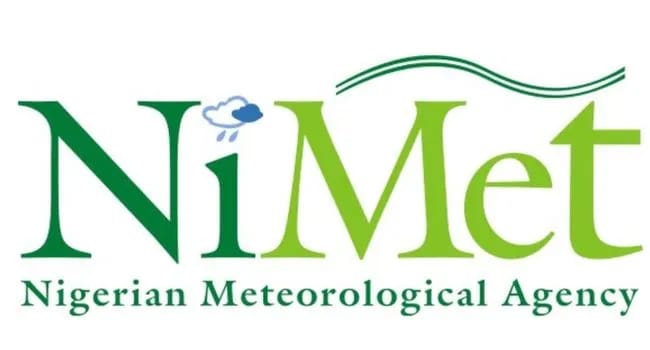The warning of the Nigerian Meteorological Agency (NiMET) has started playing out as extreme hot weather envelopes the country with health professionals reeling out solutions.
NiMET had issued a warning that the hot weather could lead to dehydration, which in turn could cause fainting, heart rash, a slight fever, dry lips, weakness of the body, and increased vulnerability to diseases such as chicken pox and measles.
The weather had become extremely hot day and night
The Agency on Feb. 13, 2024 predicted “air temperatures hit 41°C over the North and 39°C over the South with model Projections indicating temperatures to remain high in the coming days.”
It agency warned of dehydration and heatstroke as the heat stress sets in.
The 41°C is considered very high and dangerous and can lead to a medical emergency that requires immediate professional attention.
NiMet added that dehydration could also cause fainting, chicken pox disease, measles, heat rash, weakness of the body, slight fever, dry lips, heat-related illnesses, respiratory issues, and increased vulnerability to chronic conditions.
“This period of the year is not supposed to be hot. NiMet blamed it on emissions. We know emissions are there, but it is not only emissions that are responsible for this.
“There are lots of activities going on like bush burning, a lot of forest areas are being burnt, and we have not been serious about ensuring that we plant more trees and limit emission sources like the gas flaring in the Niger Delta.
“It’s the impact of the climate change that we are feeling, and of course, there will be heat rash, meningitis, and other heat-related illnesses.”
The heat index forecast by NiMet showed that residents of Abuja, Akure, Lagos state, Warri, Asaba, Owerri, Umuahia, Obudu, Calabar, Uyo, Osogbo Benin, Ibadan, Enugu, Ilorin, among others are likely to experience sunstroke, muscle cramps, and heat exhaustion.
It also showed that Yenogoa, Port-Harcourt, Makurdi, Lokoja, Lafia, Ado, Ebonyi states, and some parts of Ekiti, Ondo, Kwara, Anambra states, among others, are highly likely to experience heat stroke or sunstroke.
A professor of Public Health at the University of Ilorin, Kwara state, Tanimola Akande, said excessive heat could lead to death if there is severe dehydration and proper measures are not taken.
“Hot weather commonly causes dehydration, heat exhaustion, heat stroke, heat rash, and heat cramps. It can worsen health conditions in people who have cardiovascular and respiratory diseases,” Prof Akande said.
According to him, everyone is exposed to the risk of high temperatures, but more so with people who work outdoors and with heavy manual physical workloads.
Also, a public health physician and Senior Lecturer at the Department of Community Health and Primary Care, College of Medicine, University of Lagos, Dr Doyin Ogunyemi said high temperature can have very deleterious effects on the human body.
“Apart from causing the temperature of the body to be high, extreme heat can cause exhaustion called heat exhaustion, and you can have people fainting and people that have underlying cardiovascular diseases can have a stroke, and other kinds of morbid conditions from the effects of heat.
“Excessive heat is worse in some age groups like children and older adults. The elderly are vulnerable, it can affect people who are of the extreme age groups and they can get very sweaty, and it can cause respiratory infections,” Dr Ogunyemi said.
Several studies have shown that heat could also lead to preterm birth and stillbirth for pregnant women exposed to extreme heat.
A study published in the European Journal of Public Health and titled, ‘Extreme heat exposure in pregnancy and risk for preterm birth, low birth weight and stillbirths,’ indicated links between socio-economic status and higher vulnerability for already disadvantaged groups.
The Nigeria Country Representative, World Council for Renewable Energy, Igwebuike Ijeoma noted that the extreme temperature can cause a lot of heat stress on both human beings and livestock.
Ijeoma, who is also a Board Member of the Climate Strategies UK Think Tank added fresh urgency to talks on mapping urban heat islands in the country.
“There are diseases that are triggered by the heat stress and those kinds of diseases will be on the rise. That is why we have been advocating for urban heat islands so we can be able to predict these incidences and be proactive.
“We have not made a lot of investment in mapping urban heat islands and this also speaks a lot to planting trees which helps to cool down the environment and control the microclimate of wherever you are.
“Apart from the health implications, it is going to disrupt other economic activities like farming, and agriculture,” he said.
Prof Akande, who was a former National Chairman of the Association of Public Health Physicians of Nigeria, advised that exposure to high temperatures should be reduced as much as possible by staying under shade or indoors with cooling systems like an air conditioner.
“During the period of high temperatures, increased drinking of water is important,” the don added.
Dr Gabriel Ameh, a public health physician, on Feb. 29 urged Nigerians to stay hydrated and avoid exhaustion as the period of abnormal hot weather sets in Federal Capital Territory (FCT).
Ameh gave the advice in Abuja as Nigerians are experiencing a heat wave, causing millions of people to suffer scorching heat.
Ameh said the extreme temperatures, amid the epileptic power supply, could trigger diseases, threaten livestock and even lead to death.
The physician said the heat-wave and scorching sun experienced by residents could also trigger severe dehydration, respiratory infections aside high temperature.
Ameh said people should keep their bodies hydrated always by drinking lots of water.
He said that morbid conditions and underlying cardiovascular diseases that led to stroke could be caused by exhaustion and excessive heat.
“The consequences may be drastic; the weather is not stable; one minute it is hot, the next it is windy, dusty with a cooler temperature at night or dawn.
“I will advise people to avoid strenuous activities in hot environments; use fans or air-condition once there is power, constantly keep yourselves hydrated at all times.
“Wear light clothing’s and avoided the sun if possible.
“It is better to avoid anything that will cause one to visit the hospital for any medical emergency at this period, especially with the economic challenges to grapple,’’ he said.
He also advised the use of nose masks when the weather turned dusty and windy, adding that residents should find ways to adapt to the of climate change.
In a similar development, Mr Michael Ale, a resident, said that poor power supply had made the situation worse and almost unbearable.
Ale urged the Abuja Distribution Electricity Company (AEDC) to improve on power supply to residents in the city so that they could cope with the weather.
He, however, said that people must find alternatives to ease the situation by sitting and sleeping outdoors to enjoy the fresh air, even though it came with the heat during the day but cooler at night.
Others, he added, who had the luxury of using other power supplies like generating sets and solar energy, should use it to cool off.
Similarly, Mr Daniel Adeleke, another resident in Abuja, said that he bathed more than three times a day to cool off the heat.
According to him, the change in weather had become inconsistent, unlike the previous year and seemed to have more effect on Nigerians since January.
He advised residents to ensure drinking of lots of fluids; avoid crowded environments; bath regularly and use anti-perspirant to avoid body odour, which was associated with excessive sweating.
“Thank God for the small rain that fell last night in Bwari; at least, the weather will be a bit cool today,” he said.
“About 75 percent of the human body is water, and without it, the body cannot survive. Dehydration, which results from this, is a deficiency and could be a silent killer,” said Mr Tunde Ajobo, a dietitian at the University College Hospital, Ibadan.
Ajobo said school-aged children should be drinking at least six to eight glasses of water each day to stay hydrated and avoid becoming mildly or moderately dehydrated.
According to him, “It will help them to stay alert and focused, keep their bodies at a safe and healthy temperature, and may improve cognitive functioning. Most occurrences of dehydration can be easily reversed by increasing fluid intake.
“Children have immature thirst mechanisms, relatively high rates of fluid loss, and high activity levels, and are therefore at a higher risk of becoming dehydrated during hot weather or intense physical activity.
Particularly in this season, they will demand more water to replenish that which is lost. They should be given, not shut down. How much water is lost depends on age, body size, physical activity, health, and environmental conditions. Dehydration can happen slowly, unnoticed, and quickly.
“Younger children and babies are more likely to be dehydrated. Since there is no provision for water storage in the body, their water demand will be greater, and as such, they must be allowed to drink whenever they so desire to replace water lost.”
The Executive Secretary of the Nigerian Academy of Science, Dr Oladoyin Odubanjo, stated, “Most Nigerians are dehydrated. It accounts for our tiredness, headaches, poor ability to concentrate, and so on. This can lead to children not being able to concentrate properly in school, partly because they are tired and their blood circulation is not good enough.”
Odubanjo, a public health physician, said mothers only need to control the intake of water in children at mealtimes to ensure drinking too much water does not make them full and unable to eat their meals.
“As the body system begins to perceive dehydration, it triggers off systems within the nervous system that tell you to drink. And if the child feels that he wants to drink, it is a natural body system that is trying to prevent dehydration, so it should be encouraged.”
Children need water to maintain their health. They do better at school, too. In a three-intervention crossover study published in September 2019 in The Journal of Nutrition, researchers found that drinking more water during school made children more alert and interested.
In the study that involved 166 children aged 11 – 12 years, the children were checked before taking part in the study to measure their attitudes towards learning and how bored, interested, and calm they felt during the day. Their urine colour and cognitive skills were also recorded.
Over the next two weeks, the children were given three 500-ml bottles of water each day, and their moods, brain function, and urine colour were recorded again.
The South East Abia State Government through the Department of Climate Change of the Ministry of Environment and Urban Renewal has expressed concern over the recent climate change resulting in heat waves during the day and at night.
The state Commissioner fior Environment, Philemon Ogbonna, in a statement, said, “While the state government is reassuring the people of its commitment to their welfare and security, Abia people are reminded that health is wealth and that they should do all they can to live a healthy life”.
The Federal Environment Protection Agency recently warned that current change In Weather Across the Country is Not Harmattan, But Air Pollution With Serious Health Implications.
FEPA has cautioned that it can lead to hazardous health conditions that causes: Reduced Lung function, Respiratory infection, Inflammation.
The agency of government advised that Nigerians should henceforth wear nose mask, Stay hydrated by ensuring they Drink more water; cover food and water very well to prevent dust from settling on them and wash fruits very well before eating them.
“And stay indoors as much as possible,’’ FEPA said.
Dr Felix Archibong, Chairman, Cross River chapter, Nigeria Medical Association, NMA, and Dr Ezekiel Edino, Medical Director, General Hospital, Igbokoda, agreed that dehydration may cause headaches, fatigue, muscle cramps, and dizziness.
They said:, “Drinking plenty of water, staying in a naturally humid environment like under a tree may help during this period.
“People should also ensure frequent bathing, not necessarily with soap and increase water intake”.
“To remain hydrated this time, it is important we do more fruits and vegetables intake, wear light clothing, and avoid overcrowded and congested environments,” they said.
























